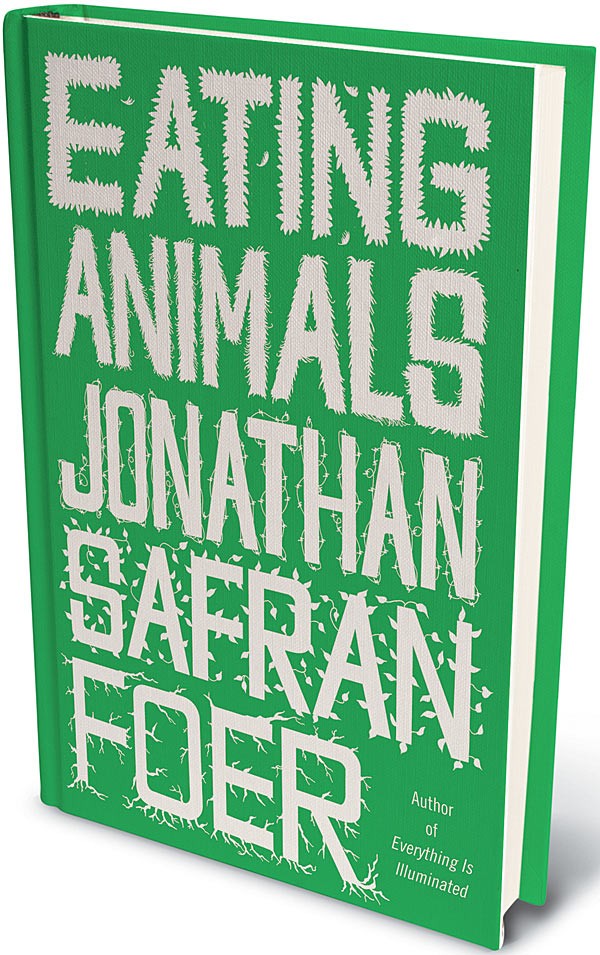Matthue Roth worked on the set of the new CBS drama The Good Wife as an extra, and blogged about it Friday and Tuesday. The episode, "Unorthodox," is about the Hasidic Jewish community in Chicago. It aired yesterday.



If you who don't know, the main use of extras in film and TV is as background. Our job is to make reality look normal, or at least palatable, and fill it with much the same grouping of people who would otherwise exist on the very same street or park or police station -- only we are specifically hired, instead of gaping at the movie stars or straining to overhear the story, to completely ignore all of it.
So it's not surprising that, when they were originally casting this, they didn't think to call real Hasidim.You don't have to have an intimacy with God or an extensive knowledge of esoteric kabbalistic teachings to be able to walk down the street in a fur hat. As a matter of fact, it's probably better if you don't. A bunch of us were hassled by wardrobe people for having our
tzitzit on the side, covered by our coat, instead of sticking out in front like a weird sort of phallic symbol. Authenticity gives people a reason to worry. They want to make things
look right, not
be right, and rightly so -- they're in the business of visuals. Instead, we give them roadblocks.
And more than a few additional problems.
We were supposed to have a sukkah. It is the middle of the
Feast of Tabernacles, and observant Jews don't eat anything outside of a small palm frond-covered booth. Okay,
anything is an overstatement. In severe cases, there's dispensation for eating snack food in small amounts. And it has to be certain kinds: only foods that satisfy the most general blessing, which means they basically have to be either completely ground up or chemically based. (Potato chips, for instance, are a question, because they still sort of look like potatoes.
**) But that doesn't change the fact that the catering crew is putting out the lunch buffet, and it smells really good. Even when the menus are posted, and they're serving -- wait for it -- barbecue pork loins. It's not offensive. It's just funny.
Rabbi Elli grabs me by the
kapote and whisks me out of there. We head to a local bodega, where we secure the most healthy choices we can muster with our restrictions: tortilla chips and hummus. When we return, everyone's looking at us. When we sit at our own table, with the other Hasidim-for-a-day, and start digging into our Garden of Eatin' Sesame Blues, it does nothing to diminish our conspicuousness. We might all be playing Hasidic Jews, but one thing never changes: the more Jewish you are, the more you stick out.
By the end of the day, playing a Hasid has run its course. I'm a little edgy, since people told me the shoot would take half a day, we've been here since 6 am, and it's already 4:30 pm. I told work I'd be in a few hours late. The other actors laugh at me. "'Half a day' means till 5!" they exclaim. "A full day will take you till midnight or one am" Then everyone takes turns telling their nightmare stories -- Elli was once filming in a concrete tube off the river in the middle of winter until 4 am -- and trade fables of Golden Time. Union pay scale provides for time-and-a-half for hours 9-10 in a day; then double-time up to hour 16. After that is something they call "Golden Time" -- for every hour worked past the 16th hour of a day, actors earn an entire day's pay. Possibly the only thing more legendary than getting paid Golden Time is the tradition of telling set stories itself.
For the final scene, the producers bundle all the extras out into the sidewalk. A truck pulls away from the curb; Ms. Margulies and Ms. Panjabi stand in the center of the street, watching meaningfully as it zooms off. I'm again paired with my wife (sans kids, this time), and we take upon ourselves the now-familiar goal of walking down the street and pretending to talk to each other. Now, though, we actually talk. Either I'm getting to be a passable actor, or we have enough shared experience that we can.
She tells me how she started out as a stage actor, got into this area. How she's good at this, how it's kind of become her regular schedule, how being stereotyped is an advantage. (Her agent says she looks "ethnic," which means that she's often called upon to play Jews, Greeks, and Arabs. Recently, she purchased her own burqa and learned to tie it, which means that, like my beard and sidecurls, she's paid $18 extra a day for "authentic attire.")
Last year, she scored the dream of dreams, a recurring role on a TV show that happened to be made by one of my favorite TV writers (Rob Thomas, who did
Veronica Mars). The show was canceled, however, and she was back to doing this.
"It's not a bad life," she told me. "I get to stand in front of cameras. I get to be recognized. And sometimes, occasionally, when I get thrown a line or placed in a good spot in front of the camera, I get to really flex my acting muscles. I get to be somebody else."
My first book,
Never Mind the Goldbergs, was the story of a girl who starred on a sitcom about an Orthodox Jewish family. The girl, Hava, was Orthodox herself -- but being Orthodox was one small part of who she was. You'd never tell by looking at her: she was also a punk-rock New York kid who dressed in different outrageous outfits every day. On the sitcom, however, she wasn't playing the sort of Jew that
she was; she was just playing
a Jew, an everyman sort of stereotypical Jewish girl. For the time that the camera was on her, the rest of her sort of disappeared.
All day, I've been going through the same sort of thing. The pretty and familiar-looking girl who'd been walking down the other side of street all day -- as soon as the last cut was called, she whisked off her wig. Her jet-black wig was replaced by a shock of bright red Manic Panic-ed hair. Her Jewish features now could have been Turkish, or Greek, or Arabic or just straight-up generic American. She was a Jew for the day, and now the day was over.
As I pulled off my hat and coat and pulled on my actual cold-weather puffy coat -- still Hasidic, just a little less obviously so -- I felt the barest shudder of a Hollywood wish. Would Hasidim ever be more than that? Would anyone in television ever be more than a cliché of themselves? Did we even want to be?
The answer is, in some ways, embodied by Archie Panjabi, who plays Margulies's sidekick, the show's investigator. She might be the only Punjabi Sikh actor on prime-time American television. She is smart, sassy, flirty and just a touch mysterious. She doesn't have any trouble manifesting her cultural identity -- by which I mean, it isn't like she's acting
white on the show -- but it's more that she is so many other things in addition to that.
Maybe that's why the knee-jerk reaction of Hasidic Jews to seeing Hasidic Jews on television is to be offended. Not because they're stereotyping us, but because they're reducing us. And, just like every Hollywood actor who gets glamorized in every inch of their lives, from their cellulite to their multiple adoptions -- and just like, I suppose, everyone, in their own way -- we just want to be adored.
____
** -- I'm grossly oversimplifying it, I know.








 expect, beyond the specifics of the trial. Officially, I'm not allowed to share it with you, but let's just say I found it strange that they still accepted me as a juror -- considering
expect, beyond the specifics of the trial. Officially, I'm not allowed to share it with you, but let's just say I found it strange that they still accepted me as a juror -- considering  You can actually eat the brains of a kosher animal. Well,
You can actually eat the brains of a kosher animal. Well, 




 And, over the course of arguing with one daughter about the social propriety of wearing a bathing suit to school and changing the other daughter's diapers, I kinda forgot to put it in my backpack.
And, over the course of arguing with one daughter about the social propriety of wearing a bathing suit to school and changing the other daughter's diapers, I kinda forgot to put it in my backpack. mumps in 2010?!) On the other hand: Being that we're in Crown Heights, it's totally natural and normal and not at all a breach of social etiquette to call some random folks and say, we need a seder, can we come over?
mumps in 2010?!) On the other hand: Being that we're in Crown Heights, it's totally natural and normal and not at all a breach of social etiquette to call some random folks and say, we need a seder, can we come over?




 Rudnick has a gift for writing about any situation -- whether facing off against a movie producer high on cocaine or being a Jew doing fieldwork at a convent for a film script (Sister Act) or emigrating from New Jersey to Manhattan -- with good humor and total nonchalance. More remarkably, he shares that sort of easy wisdom with his characters. He doesn't offer a coming-out story so much as an understanding, sometimes silent and sometimes not, and even the darker sides of his new New York neighborhood are treated with a gentle glibness by his aunts: "'S and M,' said Lil, nodding her head. 'That's when people like to have other people beat them up, right? Like on dates?'"
Rudnick has a gift for writing about any situation -- whether facing off against a movie producer high on cocaine or being a Jew doing fieldwork at a convent for a film script (Sister Act) or emigrating from New Jersey to Manhattan -- with good humor and total nonchalance. More remarkably, he shares that sort of easy wisdom with his characters. He doesn't offer a coming-out story so much as an understanding, sometimes silent and sometimes not, and even the darker sides of his new New York neighborhood are treated with a gentle glibness by his aunts: "'S and M,' said Lil, nodding her head. 'That's when people like to have other people beat them up, right? Like on dates?'"
 It was almost the end of my shift. An woman in her late 60s showed up (danger, my mind flashed, slow walker) asking for an escort to the subway station (another danger sign: it's 15 minutes away). I smiled and said sure. She was an old black woman with one of those hairdos that is frozen into place and pastel pink church clothes. It turned out that she lived a block or two away from me.
It was almost the end of my shift. An woman in her late 60s showed up (danger, my mind flashed, slow walker) asking for an escort to the subway station (another danger sign: it's 15 minutes away). I smiled and said sure. She was an old black woman with one of those hairdos that is frozen into place and pastel pink church clothes. It turned out that she lived a block or two away from me. 









